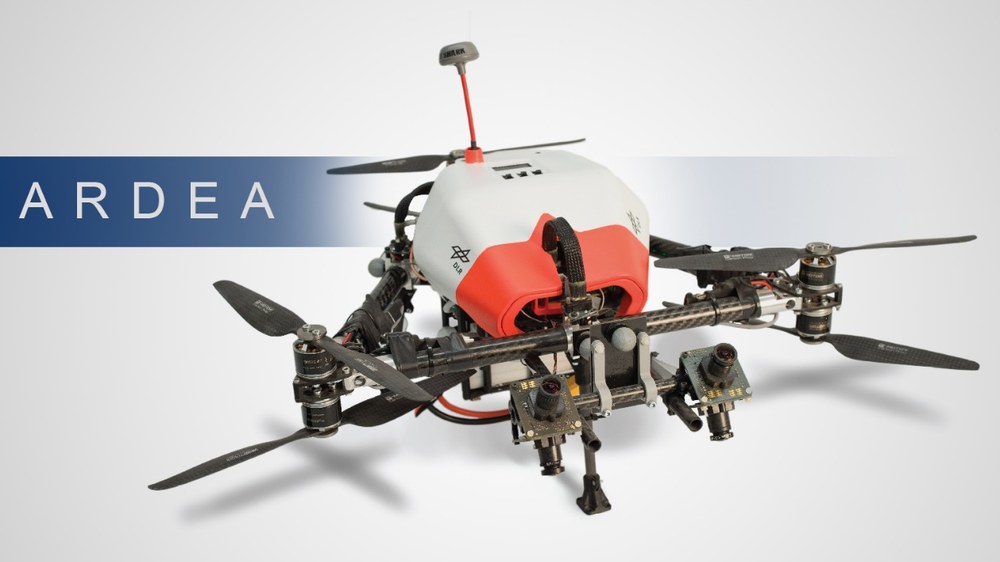Working / Master / Bachelor Student (f/m/x): Vision-based State Estimation for UAVs in planetary Exploration
Background:
The Mars helicopter Ingenuity made history with the first powered flight on another planet and far exceeded expectations with over 70 successful missions. Its final crash, induced by a failure in visual-inertial state estimation, highlights the need for more robust navigation systems. Mars is especially challenging due to its unstructured, homogeneous, and unknown terrain - combined with very limited payload and onboard computing resources.
At the Institute for Robotics and Mechatronics of DLR, we have developed a heterogeneous robot team for planetary exploration, consisting of two rovers, a lander and a UAV. The UAV, which is called ARDEA, is equipped with a unique stereo camera setup, resulting in a huge 240 degree x 80 degree depth image, enabling a loosely-coupled feature-based visual-inertial odometry for navigation. Their capabilities for autonomous exploration have been proven in real-world demo missions, such as the ARCHES mission in 2022, where we deployed our robots on the Etna Volcano in Sicily.
Join us to help advance this critical technology and shape the future of autonomous flight in planetary exploration.
For application, first make contact (see below) to indicate your interest. We will then get back to you.

Possible Tasks:
- Evaluation of state-of-the visual(-inertial) navigation approaches regarding their suitability for exploration in unstructured environments
- Comparison of classical and machine learning based approaches
- Implementation of selected methods on a real, flying system
- Developing and testing algorithms in a simulation-based framework
- Further development of simulation for VIO
- Testing algorithms in flight tests on a real system in the Mars-Moon-Test facilities at DLR
Your Qualifications:
- Final year bachelor student, enrolled master student or final year master student in engineering, computer science, robotics, or a related field, with excellent academic results
- Experience with a programming language, preferably Python or C++
- Background in robotics or computer vision
- Experience with Linux environments and Git is desirable
- Familiarity with robotic middleware (ROS) can be a plus
- Fluent English communication and reporting skills
- A high level of motivation for hands-on research
